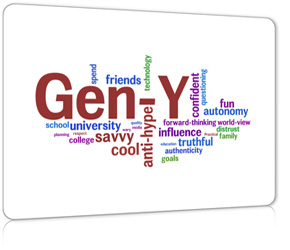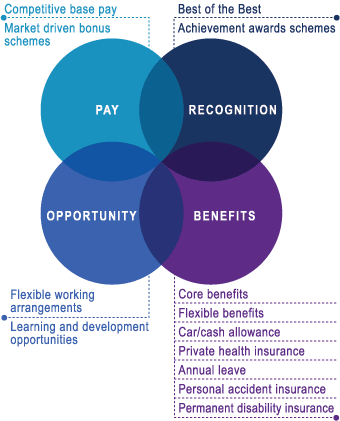Quick Case Studies #1: Preventing Millennials From Chegg-ing Out
Category: HR | Who: Chegg Inc., an online textbook-rental service based in Silicon Valley.
Problem: Employers are in high demand of millennials, but millennials also have their own high demands. In addition, baby boomers are retiring. Employers are trying to replace them with millennials, but have been encountering high turnover rates. How can they attract and attain the young generation emerging into the job market?

Analysis: Gen Y’s are ” tech-savvy, racially diverse, socially interconnected and collaborative.” They have high demands themselves – they want good working hours, they want additional benefits, they want to be heard, they want to contribute something useful, and they really want to like their jobs.
Solution: Chegg “eliminated some middle-management positions to give younger hires more exposure to projects, and they introduced an unlimited paid vacation policy. He said no one has abused that policy.” Another company, Aprimo, guaranteed “recent college graduates a promotion within one year, assuming performance is up to par.”
Results: For Chegg, “the annual turnover rate among millennials has since fallen by 50% each year for the last two years.” As for Aprimo, “100% of participants have received a promotion and salary bump,” not to mention “helped double the share of millennials at the 1,200-person company to roughly 20%.”
Personal Learnings, Comments, and Recommendations: To retain millennials and not upset their seniors, unique incentives should be implemented but not without strategy. It is important to effectively and clearly negotiate to all employees to make sure no group feels segregated or mistreated because of new policies or incentives that they are not receiving. How? I would dive back down to assess the basics of human nature starting from McClelland’s Human Motivation Theory and Sirota’s Three-Factor Theory and then make executive decisions on what incentives to implement after:
| Millennials
Achievement (more dominant): They want to feel like they are contributing, and they want to receive active feedback for how they are doing. They are motivated by challenge and the chance to fully use their talents. They like being directed with goals, and want their jobs to be non-routine. Affiliation: Millennials were brought up in a diverse and collaborative environment, so they are comfortable. At the same time, millennials prefer change and a little risk. They are more likely to hop companies and try new things. Power: They look for opportunities for growth and, well let’s be honest, more money to buy their iPhone 5’s and ultrabooks. |
Baby Boomers
Achievement: Baby boomers have more years in the field, and thus they tend to follow the system for feedback.They have good work ethic and are alright with routine. Affiliation: They tend to be more independent, and would likely would find motivation in passing on their knowledge and exemplifying their skills to the younger, arrogant generation who couldn’t properly wear a suit if their lives depended on it. Power (more dominant): They want to feel important and respected, and could feel threatened when they feel as if their seniority is not being enforced. They are more likely to enjoy a bit of competition and are quite good at communicating their needs. |
Both
Equity/fairness: At the same time that millennials should be able to receive incentives, baby boomers must not be neglected because ultimately, “they were there first.” They want to ensure job security. Achievement: In that sense, incentive programs that could promote/motivate millennials should be countered with programs to recognize seniors. Boomers want to know that their wages are still relatively competitive. Camaraderie: Of course, the best case scenario is that the two generations get along. This will help increase employee morale and productivity. |
It’s really interesting to read about the actual trends in employee attraction and retention as I prepare to emerge into the job market as a Gen Y myself. How fast will the market change in 2 years?
—
About Quick Cases:
In order to train my critical thinking and analysis skills, I have decided to blog about case studies at least twice a week. The ultimate challenge? Complete each one within an hour. I will summarize the case and comment on any ideas I absolutely loved, or anything I would have done differently. Stay tuned for another!
—
Update:
Just came across another case study talking about youth unemployment and Benetton’s solution: the “Unemployee of the Year” campaign. Interesting read!


One Comment